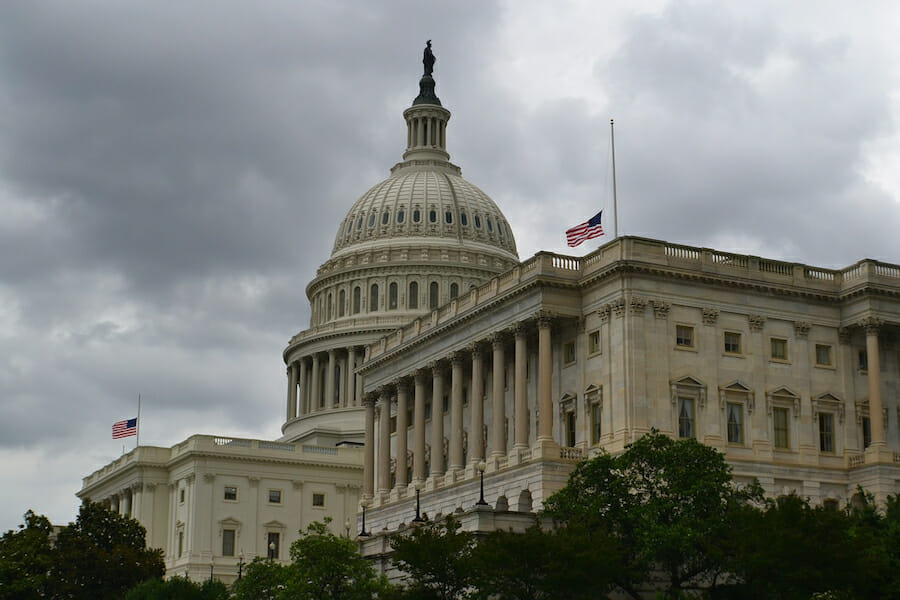
Politics
Discussing American Democracy
“Democracy is the worse form of government, except for all the other forms that have been tried from time to time.” – Winston Churchill
Churchill’s statement provides a sweeping, and possibly one-sided picture, of democracy as a mixed blessing — a system with its boons and banes that just somehow works. Such a generic observation outlines, on one hand, that democracy is better than any other non-democratic system, and at the same time points out that it still is not the God-given mandate to all problems that this world is currently facing. Unfortunately, a good number of Americans tend to agree with the first interpretation of Churchill’s statement, but overlook the second one.
Much like any other form of governance, democracy too is vulnerable. However, one can find solace in the fact that a democratic setup offers us the chance to have second thoughts about mistakes of the past: replace one set of fools with a new set of fools, for instance. The elected leaders serve for a given time period — such a time limit can control the amount of damage that they can do to their country or, in the case of the United States, to other countries as well.
The recent U.S. elections
Results: Republicans fared way better than Democrats.
If one is looking to criticize the American implementation of democracy, the reasons are not too hard to find. In fact, you can get a dismal picture of U.S. democracy simply by looking at the major themes and issues that surfaced during election campaigns: WMDs in Iran, barbarian Russians in Ukraine, Palestinians, the it-can-kill-us-anytime-somebody-save-us Ebola virus, and so on. Such issues illustrate just how ill-informed the average American is and as a result, media advertisements and publicity stunts are all that you need to win an election!
However, we can let all that rest for a while. My focus is on something else: these mid-term elections witnessed the poorest voter turnout in the last seven decades. Barely 36.4% of eligible voters bothered to cast their votes, according to NYT.
Quite obviously, such a poor turnout does not speak well of American democracy. When the voters are uninterested, ideological clashes and noble intentions do not matter. It all boils down to publicity and mobilization attempts, period. Such “sponsored deceit” as an election strategy leads to corruption, inefficiency and, at worst, creation of a system where elites and interest groups dominate the political fabric of the country.
Yes, this is precisely what is happening in the U.S..
A ‘Democratic’ foreign policy?
Once again, referring to Churchill’s observation: democracy might not be flawless, but it is, apparently, the best system at present.
However, as pointed out, America’s implementation of this very system is far from being called the best. Therefore, when a democratically elected government in the U.S. decides to indulge in military action, such decisions may not always be democratic.
In fact, the United States does not have a good record when it comes to foreign policy vis-à-vis democracy. Some noteworthy examples:
• 1953: The U.S. tried to destroy democracy in Iran
• 1954: Another attempt, this time in Guatemala
• 1956: Opposed United Nations’ attempt to restore democracy in Vietnam
• 1958: Sent troops to support militants attempting to subvert democracy in Lebanon
• 1973: Overthrew an elected government in Chile
Need more examples? You can find Venezuela, Palestine and various other countries on this list.
I will refrain from passing judgments at American intentions and/or criticizing U.S. foreign policy — that is something citizens of the U.S. should do. However, I have cited the above examples to show that the assumption of democratic countries being friendly with each other is plain wrong.
Appraisal
Recently, experts at Princeton University concluded that the United States is no longer a democracy. Instead, it is: “…an oligarchy of rich, well-connected individuals on the political scene [who] now steer the direction of the country, regardless of or even against the will of the majority of voters.”
While I do not find myself qualified enough to discuss the verdict of Princeton University’s scholars, I do feel that the U.S. might still be a democracy, albeit the focus has shifted from the common populace and now, competing interest groups are in power, with parochial interests that are opposed to national interest as a whole.
Thus, American democracy is evolving into a form of pseudo-governmental structure, wherein authoritarianism is becoming the norm, with everyone in power having a personal agenda to push forward, be it the politicians or the mainstream press.

